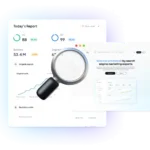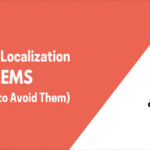Table of Contents
In today’s fast-paced digital world, the real estate industry is increasingly pivoting towards a robust online presence.
The significance of having a well-optimized digital footprint cannot be overstated, particularly for real estate professionals seeking to capture the attention of potential buyers and sellers in a crowded marketplace.
In this context, the importance of mastering the nuances of digital marketing becomes paramount, with special attention to the optimization of title tags and meta descriptions.
The Significance of SEO in Real Estate
The impact of Search Engine Optimization (SEO) on real estate marketing is profound. In a sector where the initial property search and evaluation increasingly happen online, appearing prominently in search engine results can significantly influence a real estate firm’s success.
SEO practices help in making property listings more visible and attractive to potential buyers browsing online.
Title tags and meta descriptions are integral to this SEO strategy. They provide a snapshot of what a property offers and are instrumental in improving the click-through rate (CTR) from search results.
An effectively crafted title tag captures the essence of the property and includes pertinent keywords that prospective buyers might use in their search queries. Similarly, meta descriptions serve as a brief advertisement, highlighting key features of the property and prompting the user’s curiosity.
These elements help real estate websites to not only rank higher in search engine results but also entice potential clients to explore further. The strategic use of title tags and meta descriptions thus becomes a crucial aspect of digital marketing in the real estate domain, directly impacting the visibility and attractiveness of property listings online.
Crafting Effective SEO Titles for Real Estate
Best Practices for Writing Impactful SEO Titles
Creating SEO titles for real estate listings involves more than just stringing together keywords. An effective title should capture the essence of the property and resonate with the target audience. Here are some best practices:
- Be Descriptive and Concise: Your title should give a clear idea of the property while being succinct. Titles that are too long may be truncated in search results.
- Include Keywords Strategically: Keywords are crucial for SEO, but they need to be integrated naturally. For real estate, this often includes the property type, location, and unique selling points.
- Prioritize Readability: While keywords are important, the title should be easy to read and understand. Avoid jargon and overly complex language.
Incorporating Keywords and Location Effectively
Keywords and location are vital in real estate SEO titles. For instance, a title like “Elegant 4-Bedroom Townhouse in Downtown Chicago” effectively incorporates the type of property, its size, and location.
Examples of Successful SEO Titles in Real Estate
- “Luxury Waterfront Condo in Miami with Panoramic Views”
- “Spacious Family Home in Austin with Private Backyard Oasis”
Mastering Meta Descriptions for Real Estate
Meta descriptions don’t directly impact SEO rankings but are crucial for user engagement. They act as a teaser that entices potential buyers to click through to your listing.
Tips for Writing Engaging and Informative Meta Descriptions
- Highlight Key Features: Mention unique aspects of the property, such as a renovated kitchen or a scenic view.
- Include a Call to Action: Encourage users to click through with phrases like “Discover your dream home” or “Schedule a viewing today.”
- Keep It Under 160 Characters: This ensures your meta description is displayed fully in search results.
Examples of Effective Real Estate Meta Descriptions
- “Explore this stunning 3-bedroom penthouse in New York, featuring an open-plan layout and rooftop terrace. Schedule a visit now!”
- “Discover the charm of this cozy countryside cottage in Vermont, perfect for serene living. See photos and details inside.”
Balancing SEO and User Experience
Strategies to Ensure Title Tags and Meta Descriptions Are Appealing
Balancing SEO and user experience in title tags and meta descriptions involves:
- User-Centric Writing: Craft titles and descriptions that address the user’s needs and interests.
- Use of Natural Language: Write in a conversational tone that’s easy to understand.
The Importance of Avoiding Keyword Stuffing
Keyword stuffing can harm both SEO and user experience. Overusing keywords makes content difficult to read and can lead to penalties from search engines. It’s essential to use keywords thoughtfully and sparingly, focusing on creating value for the reader.
Optimization Techniques and Best Practices
Optimizing SEO Titles and Meta Descriptions in Real Estate
Effective optimization of SEO titles and meta descriptions in real estate involves several key practices:
- Use Localized Keywords: Incorporate geo-specific keywords relevant to your property listings. This enhances local SEO and targets potential buyers searching in specific areas.
- Balance Length and Clarity: Titles should be concise yet descriptive, ideally under 60 characters to avoid truncation. Meta descriptions should be informative and under 160 characters for complete visibility.
- Include Unique Selling Points (USPs): Highlight features that set your property apart, such as “sea view,” “central location,” or “newly renovated.”
Regularly Updating Content
Search engines favor fresh, updated content. Regularly revisiting and updating your SEO titles and meta descriptions can help maintain relevance and ranking. This is especially important for listings that may change over time, reflecting new features or market shifts.
Leveraging Tools and Resources
Several online tools can aid in crafting and optimizing SEO titles and meta descriptions:
- Keyword Research Tools: Platforms like Google Keyword Planner or SEMrush can help identify effective keywords.
- SEO Plugins: For website content management systems like WordPress, SEO plugins like Yoast can provide guidance on optimizing titles and meta descriptions.
- Analytics Tools: Use Google Analytics and Google Search Console to track the performance of your SEO efforts and make informed adjustments.
Recommendations for Further Learning
To enhance your skills, consider online courses in SEO and digital marketing, available on platforms like Coursera or Udemy. Following industry blogs and attending webinars can also provide valuable insights and up-to-date practices.
Recent Trends and Performance Analysis
Recent trends emphasize the importance of mobile optimization and user intent. With increasing mobile searches, ensuring that your SEO titles and meta descriptions are mobile-friendly is crucial.
Additionally, aligning content with the user’s search intent and incorporating question-based keywords have become more significant.
Statistics Highlighting the Effectiveness of Optimized Titles and Meta Descriptions
Recent data indicates the significant impact of well-crafted SEO titles and meta descriptions on website traffic and engagement.
For instance, studies show that listings with optimized meta descriptions can experience higher click-through rates. Similarly, incorporating high-volume keywords in titles can improve search rankings and visibility.













